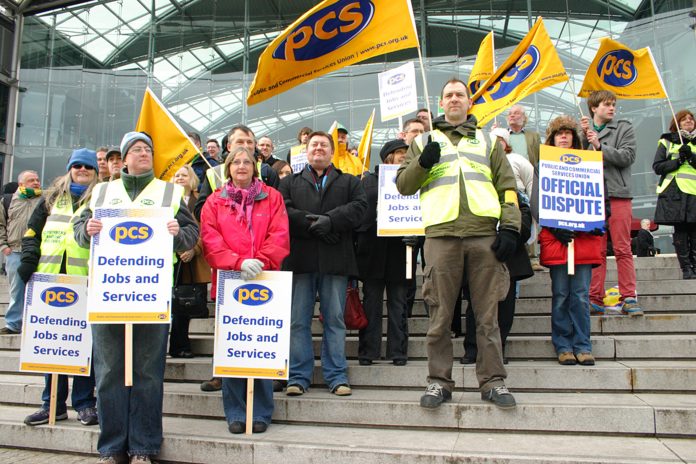Dave Semple, PCS branch secretary, Wigan, personal capacity
On 30 November, as university and postal workers were taking national strike action, the Broad Left Network (BLN), a rank-and-file group in the civil service union PCS, held a successful meeting of activists.
Over 60 PCS members, from around the country and from a range of different civil service groups, joined the meeting. Many were new to the BLN, and all were angry at the decision of the union’s national executive (NEC) to call only very limited strike action.
Mandate for action
At the beginning of 2022, PCS held a consultative vote to test members’ willingness to strike for a 10% pay claim. This consultation, which finished in early March 2022, gave the executive a massive mandate to organise for action.
Nine months on, following an overwhelming ‘yes’ vote in a national official ballot, giving 100,000 members a mandate to strike, the union’s leadership has only just announced action, starting mid-December, to support our 2022 pay claim!
Despite the fact that other unions around us are calling national all-members’ action, which PCS could easily join in with, the PCS leadership has restricted itself to a series of small-scale selective strikes, with decisions on all-member action put off to the new year.
The meeting was chaired by PCS’s BEIS group president Marion Lloyd (BEIS is a government department), and addressed by Jim Halfpenny from the Scottish education union EIS, and Fiona Brittle, PCS national executive committee member and BLN supporter.
Jim outlined his union’s programme of strikes, described great picket line support from parents, and declared: “We did not cause the crisis and we will not pay for it!”
Fiona Brittle reported on her repeated efforts to get the PCS executive to make early plans for action. To adopt a strategy to win based on all-member action, supported by targeted strikes, and to ballot additionally for action short of strikes. She said she had supported the idea of a levy of members to help fund the action, but not the clumsy, bureaucratic way it is being imposed.
An application to call out PCS members working for the Scottish Government on the day of the Scottish budget had been rejected by the union leadership, she said, on the grounds of ‘not enough detail’ provided!
Fiona said that the BLN strike strategy, contained in the model motion to be put to the meeting, was in line with the position she had put on the executive, for which she had been attacked by the Left Unity majority leadership.
The key points of the motion, unanimously agreed by the meeting, include:
- Support for a levy, following a proper campaign amongst the membership to raise awareness about why it’s important, to gain their consent, and with an opt-out, if necessary.
- The call for an update to branches on discussions with all the other unions in dispute about coordinating action.
- The need to put ourselves in the strongest position to win this dispute. Whilst this should include targeted action, immediate and continuing all-member action is essential to unite members in all those 126 areas which have got over the anti-democratic Tory threshold. Urgently reballot those areas which fell short of winning a mandate, and include a second question for action short of strike. Hold a further ballot on action short of strike in those areas which already have a mandate.
Confident to fight
Marion Lloyd said that the union’s current Left Unity leaders start from a pessimistic view of what they consider to be possible. In contrast, the BLN strategy is based on what we need to do to win, and a confidence in the membership’s preparedness to fight.
Marion pledged BLN support for all strike action called by the union, and urged those attending the meeting to use the model motion to put pressure on the executive to reconsider its strategy.







